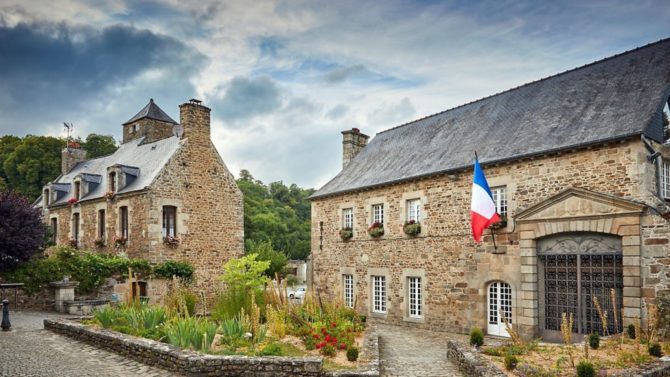Do mayors get first right of refusal on French properties?


So you’ve had an offer accepted on a French house and then suddenly the mairie expresses an interest in buying the same property at the same price. What happens now?
Question:
We had a property viewing cancelled recently because the owner was told the mayor was considering buying the house. Our neighbours in the UK lost their dream French house to the local mayor too.
I am confused about this. When and how is such an offer made, and by whom? What are the implications for a buyer, who has paid a possibly hefty deposit to a notaire and signed a legally binding purchase contract? How long does the mairie have before it has to send notice in written form of its intentions to buy? How does the notaire handle the compromis de vente? Can the notaire hang on to the buyer’s deposit for (potentially) months while the mairie decides what to do, leaving the buyer hamstrung? What happens to the buyer’s deposit if the mairie decides to buy? Does the law oblige the notaire to pay it back within a certain period of time and, if so, how long is that? And what can the buyer do if this does not happen?
Could the offer to buy a house not be made to the mayor before the house goes on the open market? What is normal practice?
Answer:
Sue Busby, of France Legal, replies: The first thing to say is that, despite the impression gained from your recent experiences, the exercising of a right of pre-emption is very rare. I have been working on French property purchases for 21 years and have only experienced this happening to a handful of purchasers.
Very often the local authority (mairie) and sometimes the agricultural authority (SAFER) have the right to buy a property that comes up for sale. The mairie can do this if it would be for the benefit of the commune. The right applies to houses, buildings and land. SAFER are able to buy agricultural or rural properties with the objective of reselling them to a buyer for a purpose which better fulfils their objectives – always for the general good. This could be to a farmer or cooperative or to a public organisation for the purposes of agriculture or conservation for example.
The procedure is that once a sale has been agreed and the 10-day cooling off period has passed, the notaire will notify anyone who has a right of pre-emption over the property of the sale and the price. It is only when a market price has been determined by a sale being agreed that the true market value has been established and thus what would be a fair price to be paid by the commune or SAFER. That is why it cannot be done in advance of the sale.
________________________________________
Don’t miss Buying and selling your French property: what you need to know
French property buying guide: the role of the notaire
________________________________________
The mairie and SAFER are allowed two months in which to exercise their right. Unfortunately, they nearly always take the full amount of time allowed. The sale would be discussed at a meeting where it would be agreed that the right would be exercised or renounced. Thus, the notaire cannot complete the sale until the answer has come back. If the response has not come back in two months, it can be considered that the body concerned has tacitly renounced its right. In some areas, it is possible to speed up the response of the mairie or SAFER by paying a fee, in which case the response must come back within one month.
Unfortunately, this does mean that the buyer’s deposit will be tied up for at least one month in the notaire’s account while it is decided whether the right of pre-emption will be exercised. Once this decision has been made, the deposit should be returned to the purchaser. There should always be a clause in your contract making it conditional upon no-one exercising the right of pre-emption and if such a condition is not fulfilled you would be entitled to the return of your deposit without delay. If this does not happen, the best course of action initially would be to write to the notaire by recorded delivery letter formally asking for the deposit to be reimbursed, enclosing your full international bank details in printed form from your bank, with your signature on.
Sue Busby is the owner of France Legal
You may also like:
How to get a long-stay visa to stay in France for more than three months at a time
Share to: Facebook Twitter LinkedIn Email


